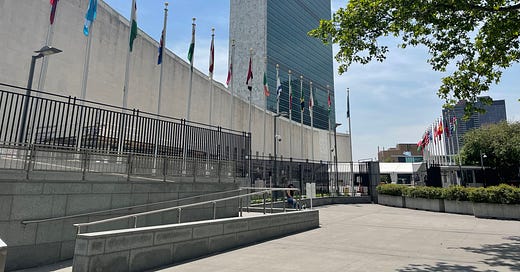15. May 16, 2023
On the road with Taiwan on my mind. The United Nations, New York. The Alliance for Peace, Peace Conference, DC. The Cannes Film Festival.
On the road
I’ve been on the road since my last post and it’s been a productive, intensely packed, fortuitous feeling trip, spending time with friends and family and on work. But I miss writing and look forward to returning to routine in another week.
I have much to follow-up on. I will continue doing my best to layer and interweave international relatio…




